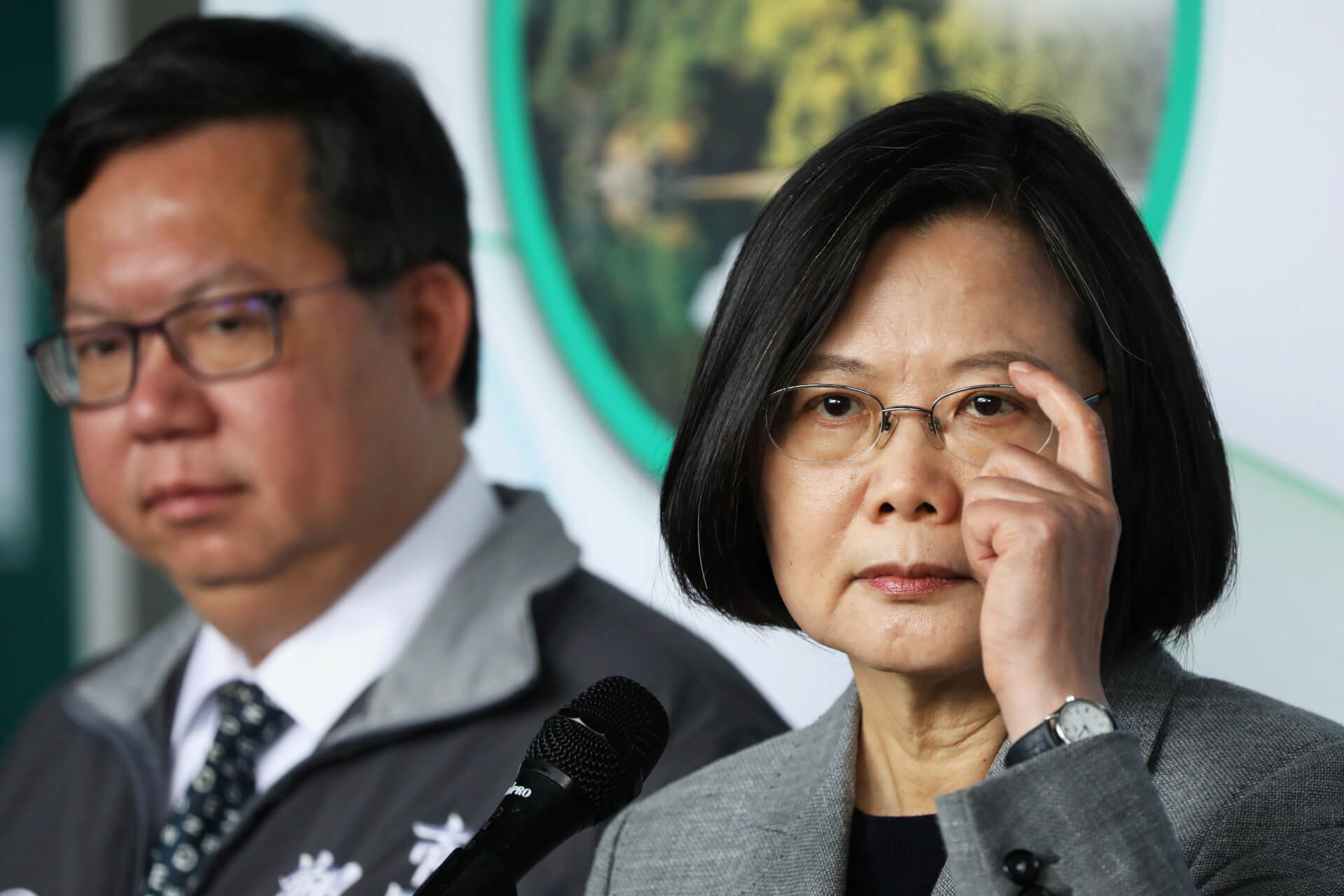Taiwan said on Monday that comparing its situation to that of Ukraine’s is inappropriate, as the two are fundamentally different and drawing any parallels between the two is a manipulation of the situation.
Cabinet spokesperson Lo Ping-cheng said in a statement that people should not engage in such rumours. “Taiwan is not only important geopolitically, it has a natural barrier of the Taiwan Strait—which separates it from China—and is a key part of the global high-tech supply chain,” he said, referring to the island’s major role in manufacturing semiconductors. “In all areas, the two cannot be compared,” Lo added.
The spokesperson did admit that the government takes stock of materials needed in the event of war and that it had conducted a routine annual review of its air raid shelters in February itself. However, he clarified that taking routine inventory was normal due to China’s frequent “schemes” against Taiwan and that people should not manipulate the fact to draw a connection with the war in Ukraine.
Elaborating on the speculation, Lo added: “There are those using this opportunity to manipulate the so-called (topic) of ‘today’s Ukraine, tomorrow’s Taiwan,’ trying to inappropriately link Ukraine’s situation with Taiwan’s, disturbing people’s morale. This is inadvisable.”
President Tsai-ing Wen has often backed this claim by insisting that Taiwan’s “military is committed to defending our homeland and continues to improve its ability to do so,” adding that its “global partners are contributing to the security of our region, giving us strong confidence in Taiwan’s security.”
China just announced Taiwan “is not Ukraine” and is “an inalienable part of China.” Buckle up, we may have a second invasion coming, this one far more significant, because no one in the world respects Joe Biden or his leadership team.
— Clay Travis (@ClayTravis) February 24, 2022
Agreeing with the lack of basis for such a comparison, albeit for different reasons than Taiwan, Chinese Foreign Ministry spokesperson Hua Chunying said last Wednesday that comparisons between the two situations were proof of a “lack of the most basic understanding of the history of the Taiwan issue.” “Taiwan for sure is not Ukraine. Taiwan has always been an inalienable part of China’s territory,” Hua said, before adding, ““Taiwan independence” only leads to a dead end. No one shall have any illusion or make any miscalculation on this issue.”
The comments by both governments come against the backdrop of Ukraine’s invasion by Russia. Since its onset, there have been concerns that China could seek to take similar action in Taiwan, as Beijing considers the self-governing island to be a breakaway province and has previously warned that reunification is only a matter of time and could be achieved via force if necessary.
Although the Taiwanese government has reported no unusual Chinese manoeuvres, it remains on high alert due to concerns that China may attempt to take advantage of the fact that international attention and efforts have been somewhat diverted by the Ukraine crisis.
Geopolitical experts, who remain sceptical about Taiwan’s national security in the current global scenario, have aired their concerns on the matter. Bonnie Glaser, director of the Asia Program at the German Marshall Fund of the United States, told DW that “Beijing will certainly draw lessons that it can use in its strategy toward Taiwan.”
“China will observe the cohesiveness of NATO and other US alliances, and their willingness to incur costs in imposing sanctions on Russia. They will closely follow Russia's hybrid warfare playbook, and how it combines disinformation with cyberattacks to influence the situation on the ground and shape attitudes toward the conflict,” she added.

